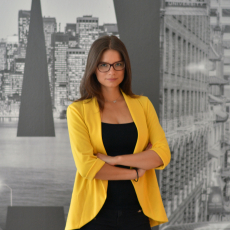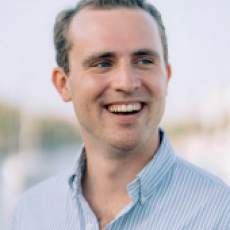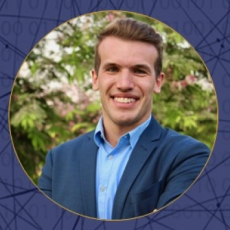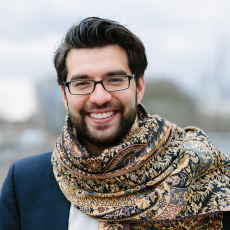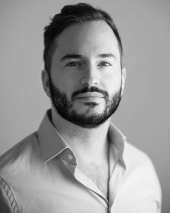
More info
The CEMS Global Alliance is a purpose led organization, powered by our beliefs that great leadership starts with self-leadership and societal progress requires continual exploration. In this series of interviews, we take a look at CEMS students and alumni that are contributing to make this world a more open, sustainable and inclusive world.
Humans of CEMS: Always keep an eye on the ultimate goal of being in charge of your professional destiny.
Please provide a brief introduction. What is your current occupation and what responsibilities does it entail?
Originally from Austria, I graduated in 2014 from the Hong Kong University of Science and Technology (HKUST) with the London School of Economics (LSE) being my exchange school. Back then I was part of their first intake in Hong Kong, which was something I really enjoyed. Following my graduation, I embarked on my career at McKinsey & Company. Leveraging this experience, I founded StrategyCase.com, a platform dedicated to helping top talent break into the consulting industry.
At StrategyCase.com, over the last couple of years I have developed a full end-to-end offering of products and services that support candidates throughout the entire recruitment process. This starts with networking strategies, moves to application document writing and editing, preparation for aptitude tests and games, and, importantly, mastering case and fit interviews. Besides the product suite, I have developed a range of coaching products and conducted over 1600 1-on-1 coaching sessions, sharing my insights and expertise with aspiring consultants.
Since starting the platform I have also published two books, "The 1%: Conquer Your Consulting Case Interview" and "Consulting Career Secrets". Both are a culmination of my ten years in this space and I tried to pack as much value into them as I could, targeting both the interview stage as well as the first few years on the job, making sure people not just get in but can create a sustainable and enjoyable career in the industry.
What made you decide to shift your focus from being a full-time consultant to being a career coach?
The decision to transition from a full-time consultant to a case interview and career coach was driven by two key realizations.
Firstly, I recognized a significant gap in the consulting recruitment landscape. Through my own experiences, both as an intern and a full-time candidate at various consulting firms during the application stage, I faced challenges, particularly during my initial attempt at securing an internship with McKinsey. Despite accessing all available preparation materials, I realized they didn't fully equip candidates for success. This observation wasn't unique to me; I saw many of my peers and practice partners struggle with the same issues. This insight sparked my entrepreneurial spirit. I saw an opportunity to bridge this gap, leading me to register the domain for StrategyCase.com even before starting at McKinsey, knowing that this was a path I wanted to explore once I leave the firm after a few years.
Secondly, personal values and aspirations played a crucial role in my career shift. It was always important to me to eventually steer my career towards something that allowed me to have full control over my schedule and location, while also aligning with my professional interests and creating value for other people simultaneously. Establishing StrategyCase.com and engaging in other ventures enabled me to achieve this balance. It offered me the flexibility I desired and allowed me to craft a neat, personalized work setup. This shift to career coaching and entrepreneurship wasn't just a professional decision; it was a lifestyle choice that reflected my values and aspirations.
What would you consider to be your mission?
My mission is centered on guiding motivated applicants into top-tier consulting firms like McKinsey, BCG, and Bain. I aim to help them navigate through the common roadblocks and misconceptions that are often perpetuated by the industry's most prominent recruiting resources.
You have to understand that only 1% of applicants make it into these top firms, yet the majority of them rely on the same outdated resources for preparation. The legacy recruiting knowledge that is transferred from one unsuccessful intake to the next is more often than not plainly wrong and detrimental to candidates’ success. This uniform approach leads to low offer rates, even among well-qualified students. Recognizing this, I was motivated to approach consulting recruitment from a fresh first principles and consultant-like perspective. I want to help each of my clients become a strong consultant, not just another case interviewee.
My goal is not just about helping candidates get their foot in the door; it's about redefining the preparation process and challenging the status quo of the recruitment industry. By offering insights that differ from traditional methods, I strive to increase the transparency of the process and equip applicants with the right strategies and tools to raise their success rates. My mission is to empower them to go through the process with greater visibility and trust, ensuring they are not only prepared but also stand out in the competitive landscape once they join their firms.
As a professional career coach, what are some common mistakes that you’ve seen from aspiring consultants and how would you advise avoiding them?
Over the last couple of years, I've observed every mistakes under the sun among aspiring consultants. While it's challenging to cover them all in this context, one key issue stands out consistently, which completely detached from the several hard skills that are needed to pass the interview: the perception of the interview process.
Many candidates mistakenly view the interview as a one-sided evaluation, where the interviewer is an authoritative figure scrutinizing their every move, gesture, and word. This mindset is not only unproductive but also inaccurate. It's crucial to understand that the interviewer, regardless of their rank within the firm, is not there to see you fail. Instead, they are more of a facilitator or a sparring partner in your journey. They want to see you succeed.
The key advice - besides the technical details of learning how to approach and master the thinking and communication for a case interview - I give to aspiring consultants is to approach the interview as a process of co-creation. It's not just about showcasing your skills in problem-solving, quantitative analysis, or communication; it's also about how you interact with the interviewer. Viewing them as an ally rather than an evaluator can fundamentally change your approach to the interview and the way you present yourself and interact with them. You want to be perceived as a future colleague, not an intimidated applicant on an exam day.
Whether you're speaking with an Associate or a Partner, see it as the game it is and enjoy playing it. Understanding this dynamic and learning how to navigate it effectively is crucial in gaining more confidence which in turn impacts your case performance.
Do you have any advice for graduating CEMSies who are just setting out in their professional life?
I am biased but my key advice to graduating CEMS students embarking on their professional journey would be to consider the long-term goal of running their own show. This path might not suit everyone, but in my opinion, it offers a profound sense of freedom and control over one's career.
There are two main routes to achieving this:
The more straightforward path involves starting your career in an industry and a company where you can rapidly acquire a broad range of skills and build credibility. This approach allows you to gain valuable experience and insights, which are crucial when you eventually decide to venture out on your own. The idea here is to first understand the ropes of the business world, gather expertise (and savings), and then leverage this knowledge to start your own thing.
The second path, which can be more challenging but potentially offers quicker rewards, is to dive straight into entrepreneurship right after graduating from CEMS. This route requires a high level of courage and resilience, as it involves directly dealing with the uncertainties and challenges of starting a business. However, if you have a solid business idea and the drive to see it through, this path can be incredibly rewarding, both professionally and personally.
In summary, my advice is to always keep an eye on the ultimate goal of being in charge of your professional destiny. Whether you choose to build a foundation first or jump straight into entrepreneurship, or something completely different, the key is to think ahead about where you see yourself in a few years from now and figure out how to best get there.
---------------------
Published on: 17.01.2024
